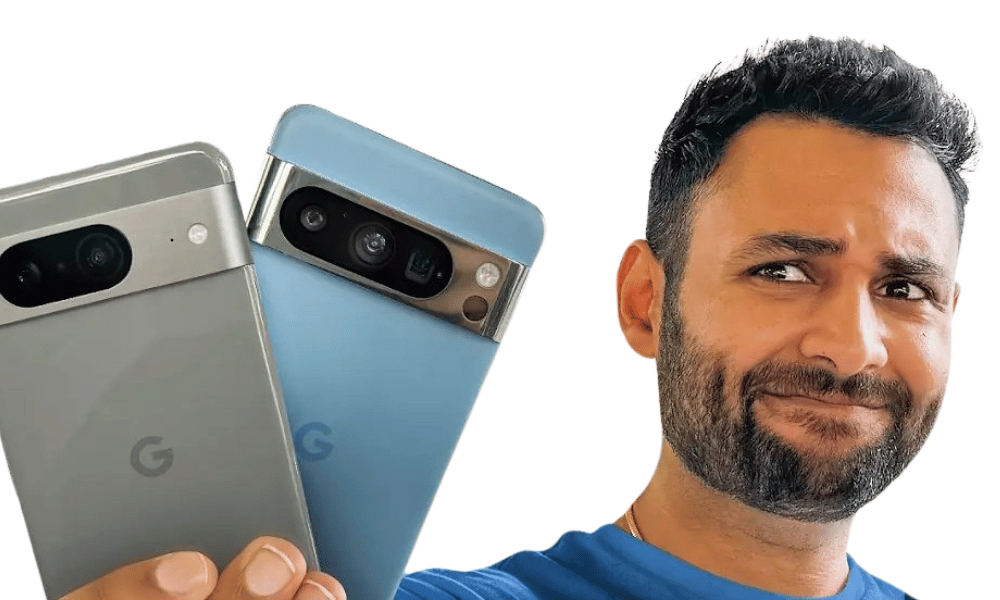Tech
Google’s Pixel Launch Sparks Outrage Among Creators

Google’s latest Pixel launch event has turned into a PR disaster after popular tech influencer Arun Maini publicly accused the tech giant of excluding him due to previous criticisms of Pixel devices. Maini, with a massive following of 19 million subscribers on his YouTube channel “Mrwhosetheboss,” was a notable absentee from the event, a fact he attributed to his candid reviews of past Pixel models. Maini’s accusation ignited a wider conversation about the potential influence of brand relationships on content creators.
For those of you asking for our Google Pixel review…
— Arun Maini (@Mrwhosetheboss) August 15, 2024
We didn't get an invite to the Google Pixel event this year. Reached out to multiple different Google contacts and not heard anything back
We were critical of the last-gen Pixel devices, but that
shouldn't be a reason to…
The comment thread has had mixed reactions from followers and other creators. While some support Google and back their choice to decide who they can or cannot invite, others disagree. The general consensus is that the whole point of following tech influencers is to get honest reviews, and if they are blacklisted for doing so, it reflects negatively on the company. And not inviting Maini and any other possible critic, doesn’t bode well for this Pixel 9 launch.
In case you were wondering, this is the video from the last Pixel launch that Maini is talking about:
Central to the controversy is Google’s Team Pixel program. Traditionally, such programs have been a win-win for both brands and influencers. Creators gain early access to products, while brands receive valuable exposure through authentic content. However, the new terms for Team Pixel crossed a line for many influencers.
The Terms of Engagement
A screenshot of the 2024 Team Pixel application survey revealed stringent conditions. Creators were expected to exclusively feature Pixel devices over competitors, with the threat of program termination looming if they appeared to favor other brands. This overt attempt to control influencer content raised eyebrows and sparked concerns about the integrity of product reviews.
The new terms represented a significant departure from previous years when creators were merely required to use specific hashtags for FTC disclosure purposes. The increased pressure to prioritize one brand over others undermined the credibility of influencers and raised questions about the authenticity of their content.
Impact on the Creator Community
Several high-profile tech reviewers, including Adam Matlock and Kevin Nether, took a stand against the restrictive terms. They publicly announced their decision to quit the Team Pixel program, highlighting the growing discontent among creators.
The controversy has far-reaching implications for the influencer industry. It underscores the importance of maintaining editorial independence and avoiding conflicts of interest. As brands increasingly rely on influencers to reach consumers, there is a growing need for transparent partnerships that prioritize authenticity over promotional content.
Implications for the Tech Industry
Google’s misstep serves as a cautionary tale for other tech companies. It highlights the risks of exerting excessive control over influencers and the potential backlash that can ensue. As consumers become more discerning, they are increasingly demanding genuine and unbiased content.
This incident also raises broader questions about the ethical implications of influencer marketing. While collaborations can be mutually beneficial, it is essential to ensure that they do not compromise the integrity of content creators or mislead consumers.
Moving forward, the tech industry must find a way to balance brand promotion with creator authenticity. Transparent partnerships, clear guidelines, and respect for editorial independence are essential for building trust with consumers.
This controversy serves as a stark reminder that the relationship between brands and influencers is a complex one, requiring careful navigation to maintain credibility and authenticity.

